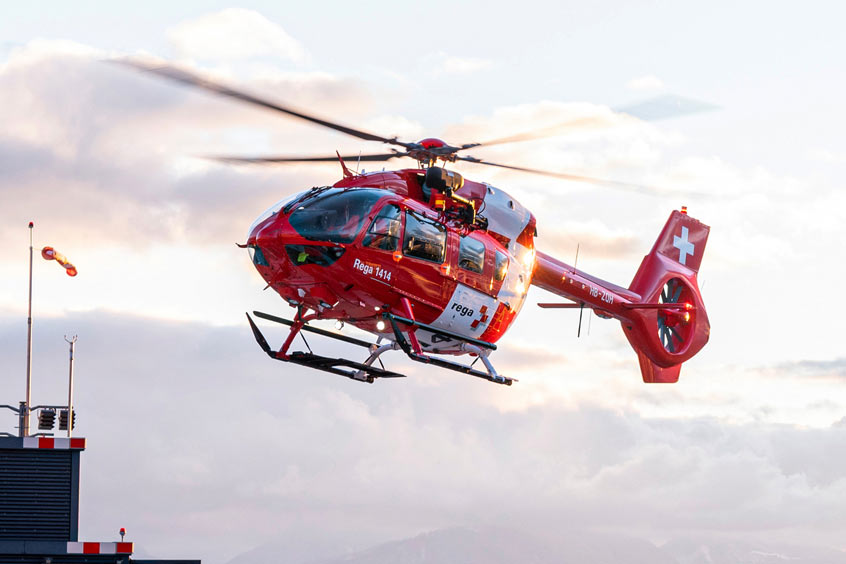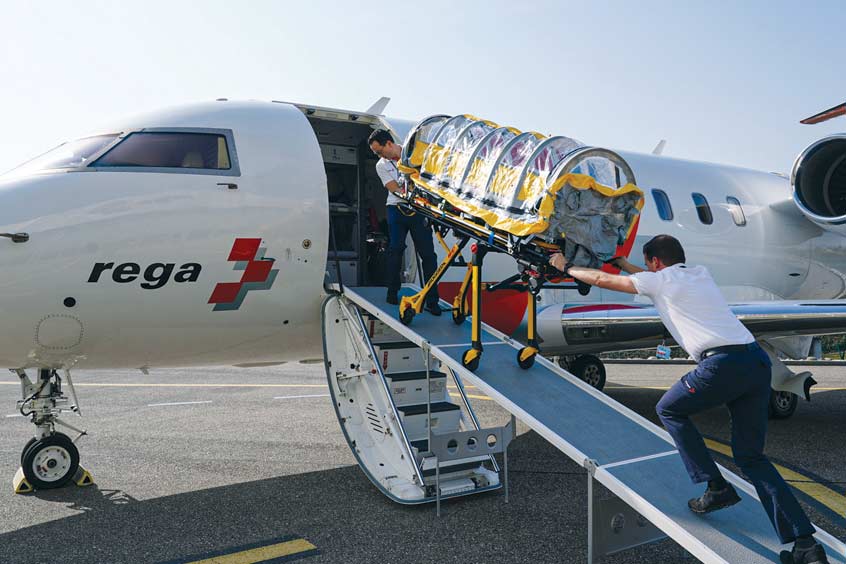ACE 2026 - The home of global charter.
 The bimonthly news publication for aviation professionals.
The bimonthly news publication for aviation professionals.



Swiss Air Rescue Service Rega's operations crew have flown over 100 COVID-19 patients on board their rescue helicopters and ambulance jets.
On March 11, the first patient suffering from COVID-19 was transported on board a Rega helicopter in Ticino. Since then, Rega crews have transported more than 100 infected patients at home and abroad. Infected patients are still flown on board the rescue helicopters and Rega's ambulance jets. Although the transport of highly infectious patients is part of Rega's normal range of use, the crews were specifically prepared by training again in February with a view to an increase in coronavirus-related use.
88 COVID-19 patients have been transported by Rega's fleet of Airbus Helicopters H145 and AgustaWestland Da Vinci helicopters since March 11, the majority of them as intensive care special transports in which the patients had to be artificially ventilated. With sufficient capacity, the Rega crews also helped in neighbouring countries. Since the Swiss Federal Council tightened its measures against the coronavirus in mid-March, Rega has seen a decrease in the number of missions in so-called primary missions after accidents due to restricted and changed leisure behaviour. Rega was still deployed however: in the last four weeks, the crews performed on average about 20 missions per day.
Rega's Challenger 650 ambulance jets show a slight increase in flight hours for the period from March 11 to today compared to the same period last year. This can be attributed, among other things, to the fact that during this period destinations were flown to further away and generally fewer repatriations could be organised with scheduled aircraft. Rega's jet crews have flown more than 20 patients infected with COVID-19 back home in the past few weeks. In addition to the implementation, the organisation of such a repatriation is currently more complex because more clarifications have to be made in advance and the situation can change continuously.